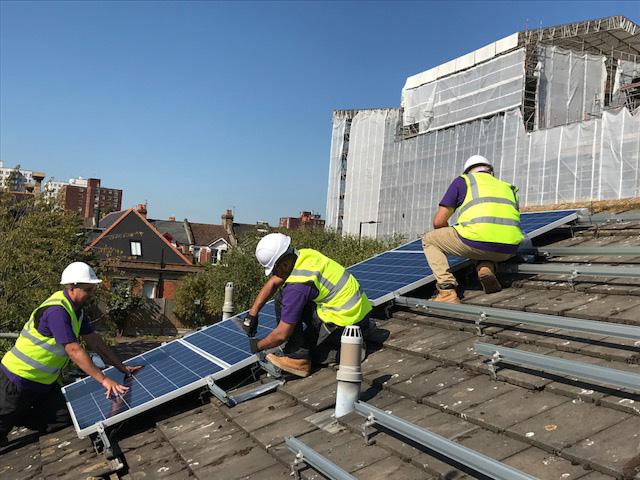The U.K. solar industry will receive a further boost over the next five years through a £160 million investment ($207.3 million) into a U.K. renewable energy social scheme by Maas Capital, a branch of the ABN AMRO bank, headquartered in the Netherlands.
The investment aims to provide households in low-income areas with cheaper energy, saving up to £192 million in total, and around £240 per family, according to the Department of International Trade. Towns in the northwest of the U.K. such as Oldham and Bradford will be the main recipients of this investment, with more than 290,000 homes poised to have solar panels installed on their homes.
British firm Solarplicity will take charge of the distribution and installation of solar panels, which will reach around 800,000 households over the next five years. This scheme is free of charge to social housing tenants and will result in the creation of an estimated 1,000 jobs covering installation and maintenance. Furthermore, the scheme will also deliver cheaper energy bills for all those households involved.
This ambitious investment has come after a series of positive outcomes for the U.K. solar industry, with residential rooftop solar PV representing 20%, or 2,502 MW, of the U.K.’s renewables energy consumption. According to Imperial College London, fossil fuels accounted for just 2% of the energy generated in Q1 of 2017, a considerable feat taking into account that this figure was at 40% only five years ago and a significant step forward in reducing emissions produced from fossil fuels. Overall, the U.K. now has 922,509 installations of solar PV, of which 46% (5,890 MW) is generated from solar farms.
Private investment is allowing the renewable energy market to thrive in the U.K. However, planned government expenditure needs to expand to give the rapidly advancing industry even more potential and legitimacy. In an interview with the BBC, Julian Bell, leader of Ealing council, stated that “the government still needs to do more to move people to sustainable energy, and solar power particularly”.
In the latest Conservative manifesto there was no mention of specific policies to support the development of solar energy; as was the case in the last election Conservative manifesto in 2015. Instead, the latest manifesto it emphasized the Conservatives’ commitment to meeting decarbonization targets set out under the Climate Change Act, and stipulates the need for a diverse energy mix.
Author: Frederic Brown
This content is protected by copyright and may not be reused. If you want to cooperate with us and would like to reuse some of our content, please contact: editors@pv-magazine.com.



By submitting this form you agree to pv magazine using your data for the purposes of publishing your comment.
Your personal data will only be disclosed or otherwise transmitted to third parties for the purposes of spam filtering or if this is necessary for technical maintenance of the website. Any other transfer to third parties will not take place unless this is justified on the basis of applicable data protection regulations or if pv magazine is legally obliged to do so.
You may revoke this consent at any time with effect for the future, in which case your personal data will be deleted immediately. Otherwise, your data will be deleted if pv magazine has processed your request or the purpose of data storage is fulfilled.
Further information on data privacy can be found in our Data Protection Policy.